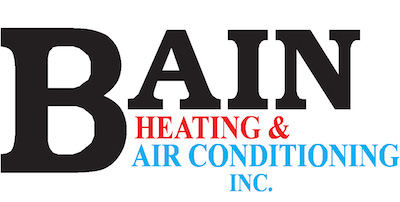
If you’re questioning whether your Heflin home has poor indoor air quality (IAQ), it possibly does.
We are indoors a lot. In reality, we’re in a building up to 90% of the time, according to the U.S. Environmental Protection Agency. And the air inside residences could be 2–5 times more polluted than outdoors, which may create long-term health concerns.
Most Common Causes of Bad IAQ
We’ve made a list of the most frequent origins of poor IAQ, the troubles they cause and how you can fix these indoor air pollutants. If you’re concerned about the air inside your residence, we suggest consulting with a expert like Bain Heating & Air Conditioning about which options are best for your family.
Volatile Organic Compounds
Volatile organic compounds, or VOCs, are fumes released by regular household products.
They’re found in paint and stains in addition to:
- Furniture
- Carpet
- Building materials
- Cleaning products
- Cosmetics
- Air fresheners
- Candles
When these vapors accumulate inside, they might irritate your eyes, nose and throat. They may also lead to headaches and nausea. Regardless of whether your house is in a rural or industrial area, an EPA study found indoor levels of these chemicals can be 2–5 times worse than the air outside.
Always use the manufacturer’s directions when using paint or cleaning supplies. Opening a window can help fumes disappear faster.
Air purification systems can also help. This unit partners with your heating and cooling system to freshen indoor air. When looking for a model, ensure it’s specifically designed to wipe out VOCs.
Dust and Pet Dander
Dust and pet dander can irritate health problems like asthma and allergies, especially when it constantly gets recirculated by your residence’s comfort unit. While you can vacuum more frequently and get an improved air filter, an air filtration system may be a better match.
This solution hooks to your heating and cooling equipment to deliver strong filtration. Some kinds provide hospital-level filtration for removing particles and bioaerosols.
Lingering Odors
Newer homes are closely sealed to boost energy efficiency. While this is great for your heating and cooling costs, it’s not so good for your IAQ.
Stuffy odors can hang around for a greater amount of time because your residence is pulling in a smaller amount of fresh air. Since keeping your windows open throughout the year isn’t doable, here are two methods you can make your indoor air smell fresher.
An air purification system is put in your ductwork to wipe out odors before they are redistributed. Search for one with a carbon filter and the power to eliminate dangerous VOCs. This equipment can also help keep your loved ones healthy by getting rid of most bacteria and common allergy triggers like pollen and mold spores.
A ventilation system pulls out stale indoor air and substitutes it with clean outdoor air. There are two models of units (heat recovery and energy recovery), so call our professionals for more info on which kind is best for your home.
Unsteady Humidity
It’s important your house’s humidity stays even. Air that’s too humid can cause mold, while dry air can create respiratory concerns.
Our techs suggest 40–50% for the best comfort. To keep yours in balance, consider getting a whole-home humidifier or whole-home dehumidifier with your HVAC unit.
In place of having to drag a humidifier from room to room, this equipment delivers consistent humidity around your house.
Carbon Monoxide
Carbon monoxide is colorless gas you can’t smell. It’s a byproduct of insufficient combustion in fuel-burning equipment, like gas heating systems, water heaters or fireplaces.
It presents an extreme health risk. In little levels, it can create flu-like ailments like headaches and nausea. It can be fatal in large concentrations.
We suggest regular furnace maintenance to ensure your system is running smoothly. This service allows our specialists to spot problems before they begin, including malfunctions that can lead to carbon monoxide leaks.
The best method to keep your residence free of carbon monoxide is to get detectors. These alarms must be on every floor close to bedrooms and living rooms.
Improve Your House’s Air Quality with the Bain Heating & Air Conditioning Pros
Informed that your house has poor air quality but not sure how to enhance it? Or unsure which solution is right for you? Give our approachable HVAC experts a call at 256-270-1196 or contact us online now. With free estimates and professional assistance, we’ll help you locate the best option for your needs and budget.


